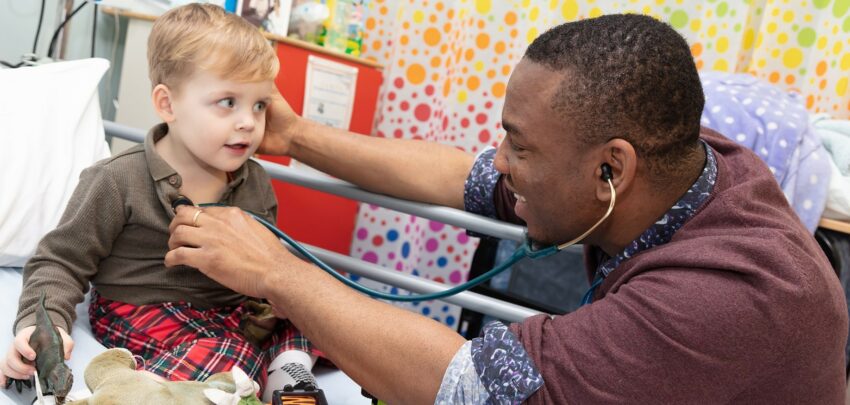The importance of global collaboration in tackling health issues has never been clearer than in the past 2 years. In an era dominated by health insecurity, new recognition has been found for the interconnectedness of global health systems and the need to work together to solve global health inequalities.
International collaboration has 2-way benefits. It can help the NHS learn from our peers overseas by drawing on their insights and leverage the UK’s expertise to help them meet their own challenges.
The TEL team has always operated as part of a wider national and international community across elearning, simulation and the innovation and adoption of emerging technologies. This includes partnerships with other global health systems, non-government organisations (NGOs) and the World Health Organization (WHO) to learn from and share good practice.
In recent years, TEL has been sharing UK expertise with other countries that require support to develop their health education offer. This has included working with lower and middle income countries in South America, southeast Asia, and Africa through the UK’s Better Health Programme. For example, in Thailand, TEL has been instrumental in supporting the introduction of revalidation for health professionals, and in Philippines and Mexico, TEL has been working on elearning to support healthy lifestyles.
TEL’s global offer has also extended to sharing learning materials authored by the NHS on a for-profit basis through eIntegrity, a community interest company where profits are reinvested into TEL, benefitting UK learners.
Global collaboration is critical to achieving a transformation in the education environment in the UK and parity of access to technology enhanced learning opportunities.
TEL continues to expand its work overseas as an education and training expert advisor and trusted global partner. As part of Year of Health and Care Workers and with HEE due to be recognised as a WHO collaborating centre, HEE’s unique position as a national healthcare education provider is being offered to support the education of millions of health and care colleagues globally and to help deliver the UN Sustainable Development Goals.
TEL is working closely with HEE’s Global Health team to:
- support the development of the new WHO Academy, the WHO’s new integrated competency-based training offer
- build relationships with new and existing global education partners including UNESCO and THET
- develop TEL’s offer to the global health and care system, through overseas development (aid), direct practical advice and support, and through technical collaborations.
I am delighted to lead this new function as Global Health Education Technology Advisor where I will work closely with TEL and partners to develop the TEL global offer.
Like many during the pandemic, I saw how interconnected our work in the NHS is with the rest of the world. Whereas in the UK, many of the changes we make in TEL are incremental improvements, the work in low-income countries is sometimes starting from scratch, so we can make a huge difference by simply sharing our experience, as well as learning from other health systems to improve our own TEL offer in the UK.
Over the coming months, I will write a series of blog posts describing how TEL is working in lower and middle income countries to share knowledge and experience of delivering education and training globally.
